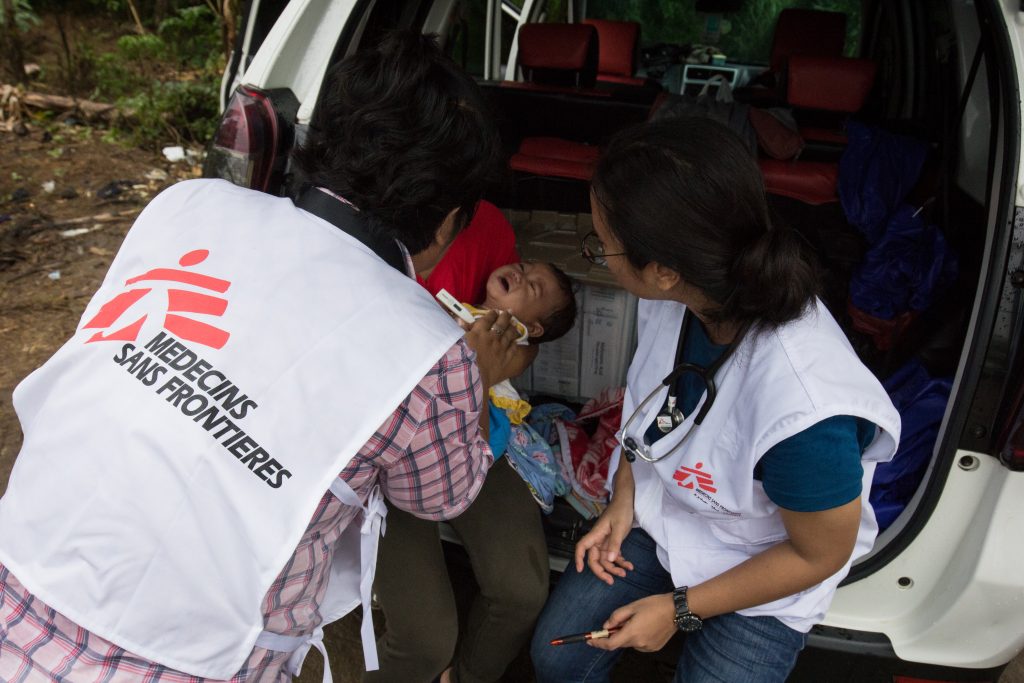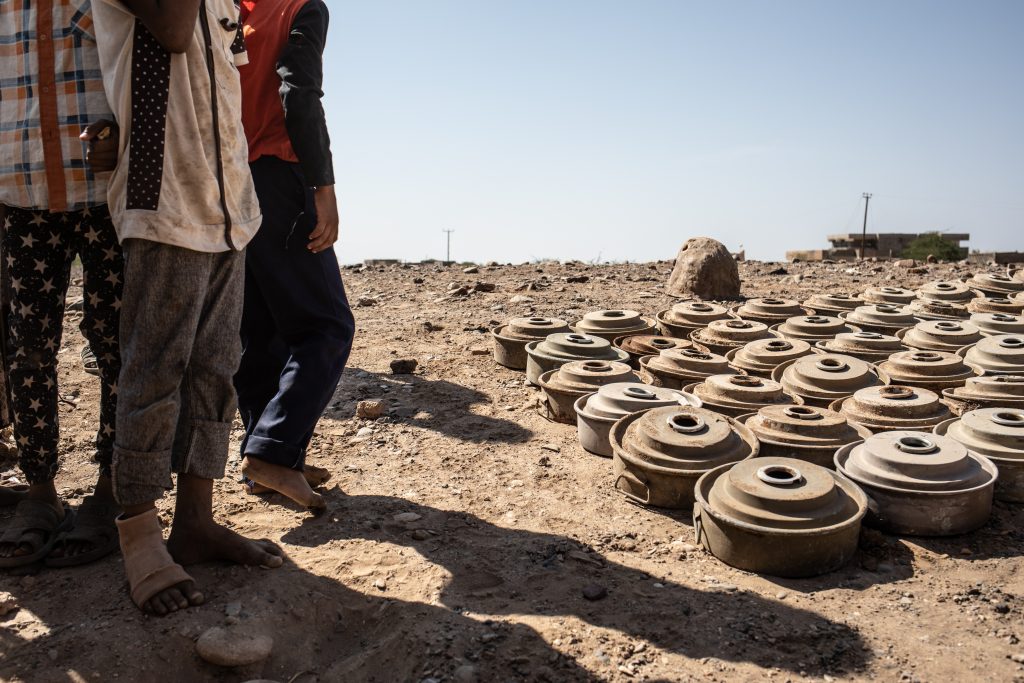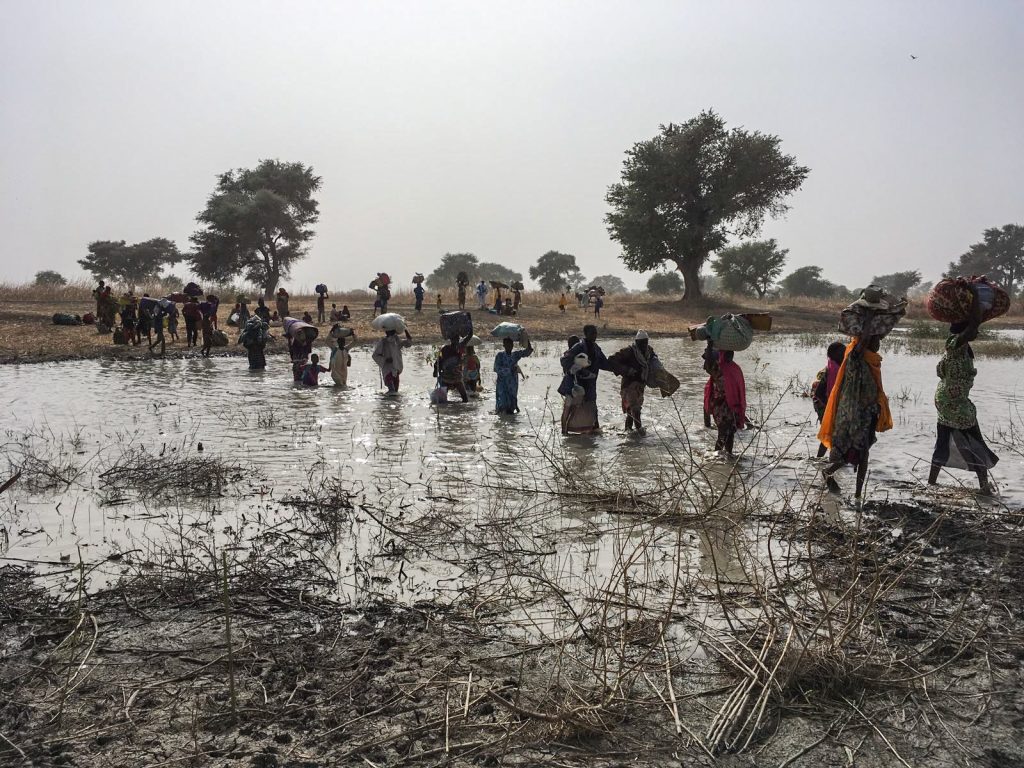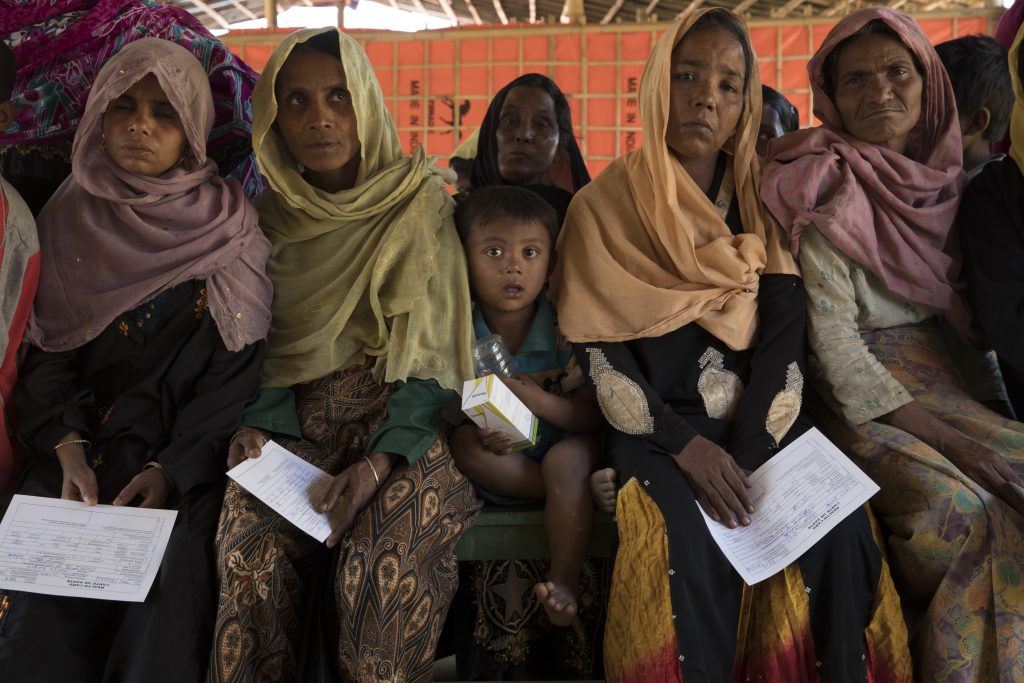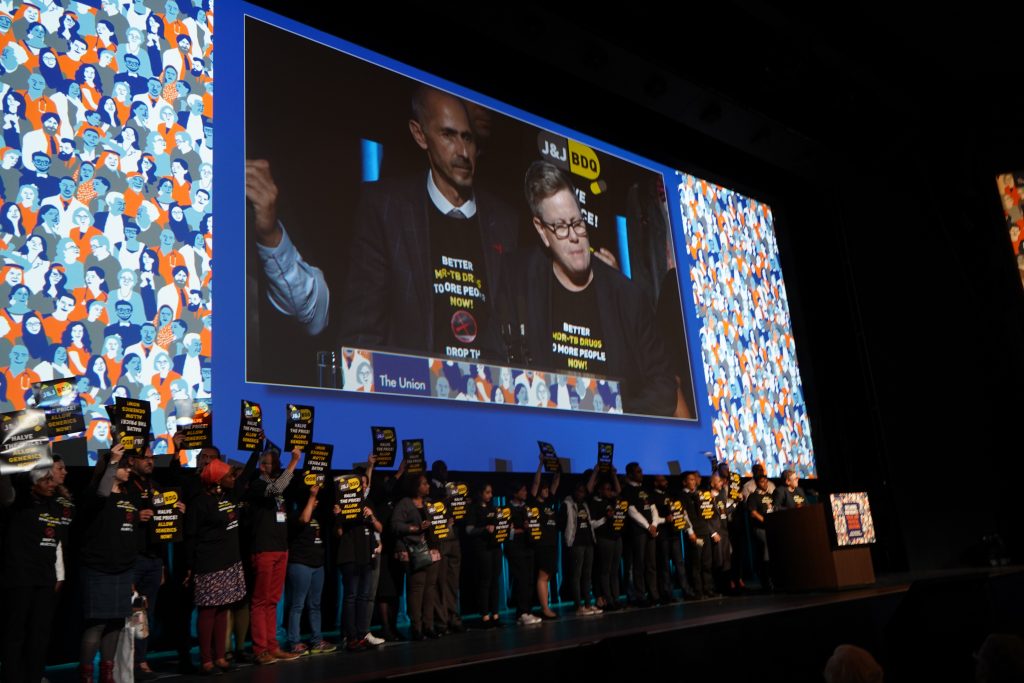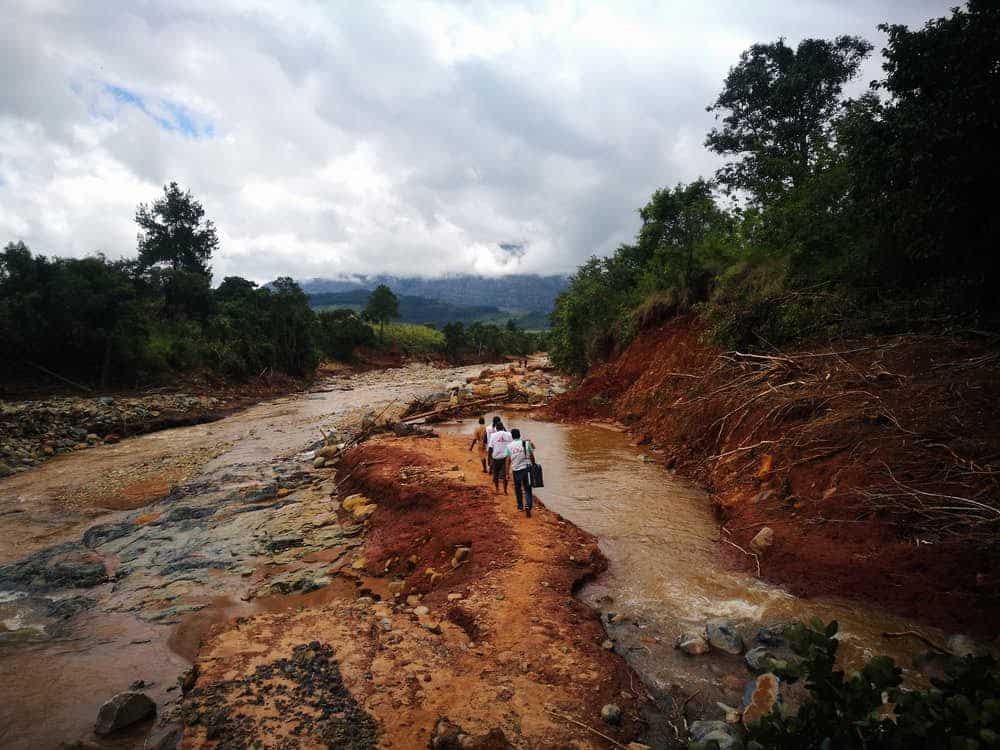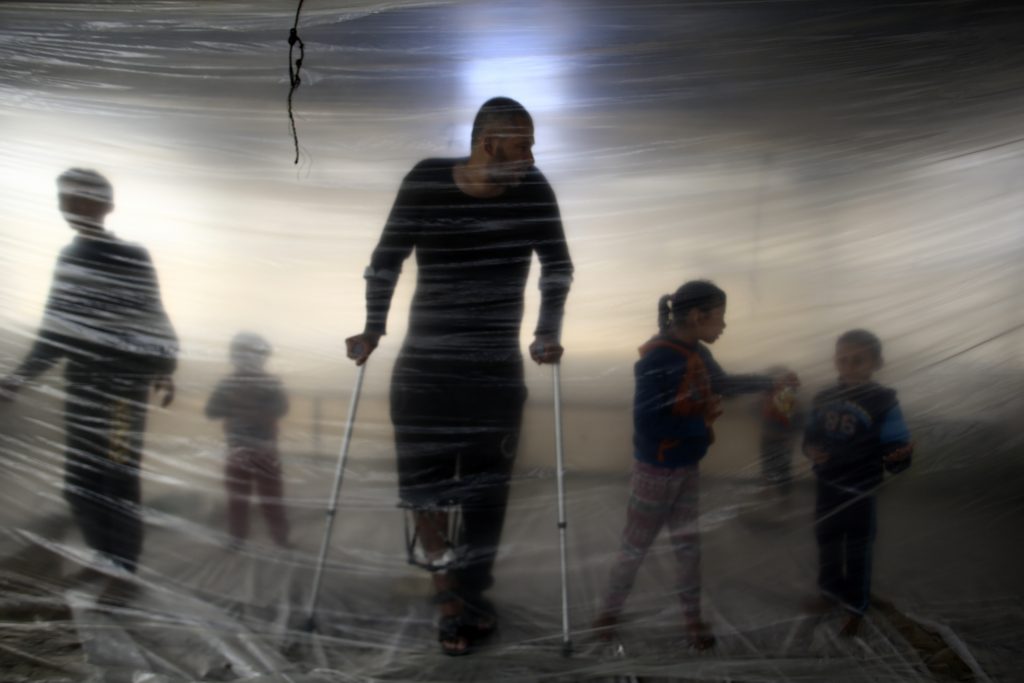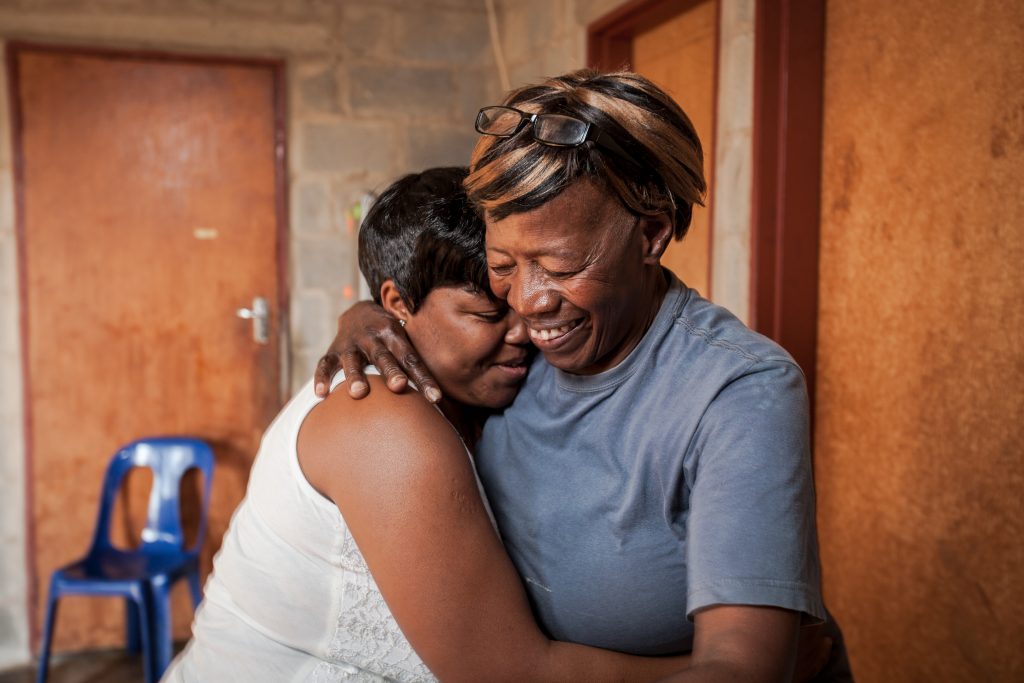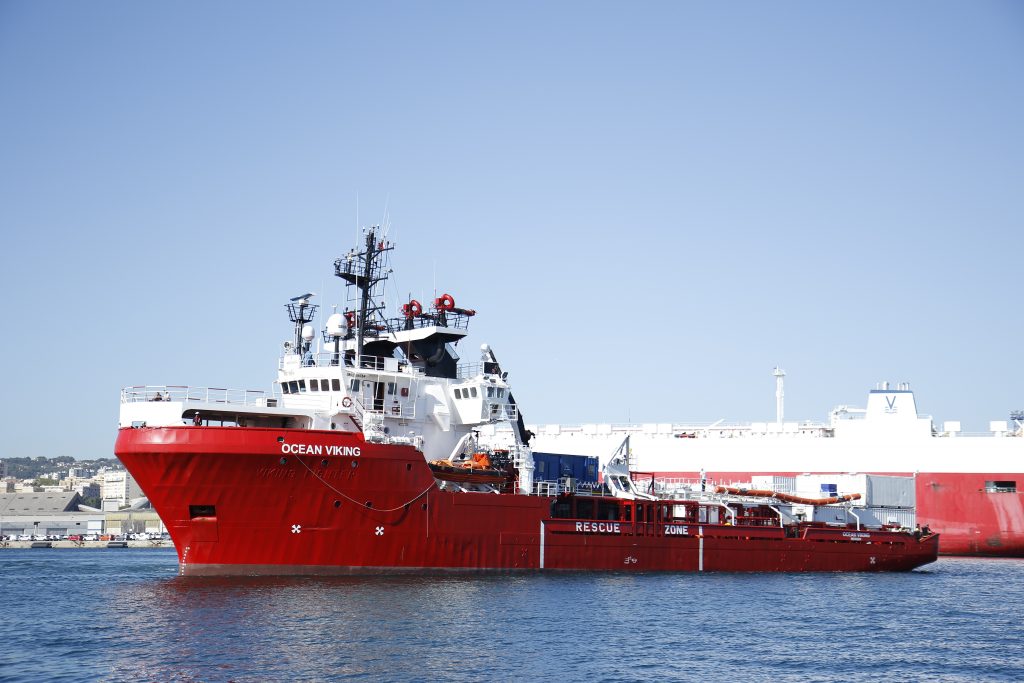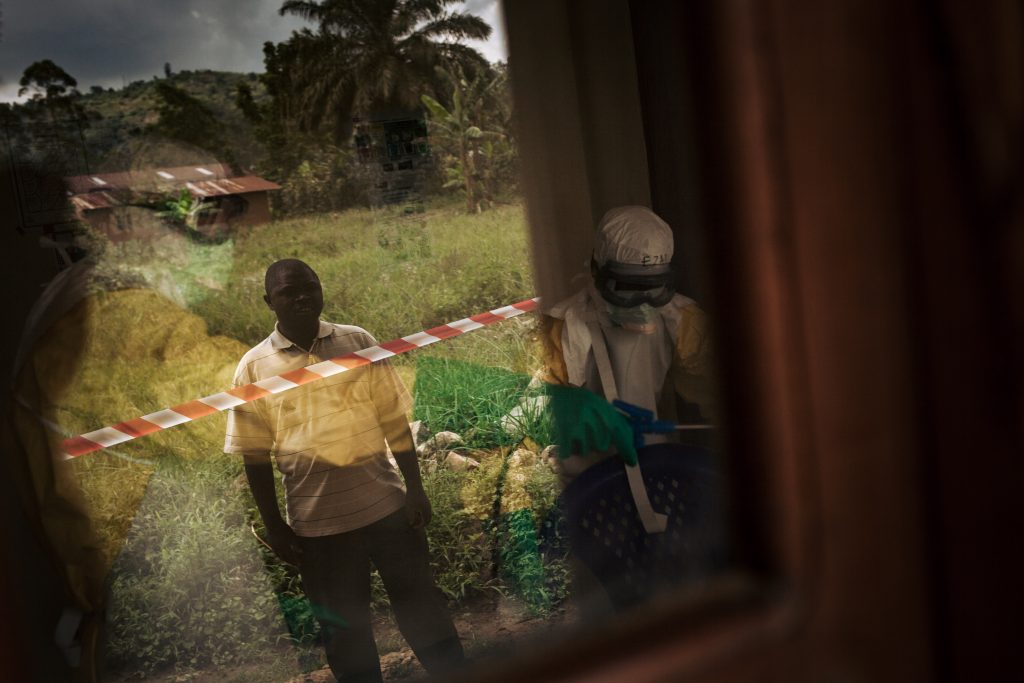Today is World Humanitarian Day and World Photography Day.
From Ebola outbreak in the Democratic Republic of Congo to MSF reviving its search and rescue operations in the Mediterranean Sea, and our response to tsunami in Indonesia to our demand to make tuberculosis drugs accessible to patients. We bring you 10 highlights of MSF’s humanitarian work in the last eight months through pictures.
Indonesia: MSF’s response to Sunda Strait tsunami
On 22 December 2019, Sunda Strait in Indonesia was struck by a tsunami injuring thousands of people. According to the Indonesian National Disaster Management Agency (BNPB), as of 14.00 local time on 25 December, a total of 16,082 people had been displaced in the five districts – Pandeglang and Serang in Banten Province, and Lampung Selatan, Tanggamus, and Pesawaran in Lampung Province.
MSF quickly mobilised teams to health centres, conducted mobile clinics and distributed hygiene kits to people affected by the tsunami.
Yemen: Trapped by landmines
In early 2018, fighting intensified along the frontline between the cities of Taiz and Hodeidah by Ansar Allah troops and forces supported by the Saudi and Emirati-led coalition. In an effort to prevent the advance of the coalition’s ground troops, thousands of mines and improvised explosive devices were planted across the region’s roads and fields. The principal victims of these lethal hazards have been civilians.
MSF set up a hospital in the city of Mocha, in Taiz governorate, in August 2018, where our teams perform emergency surgery on people injured by landmines. We urge the authorities as well as specialist organisations to step up mine clearance operations to reduce the number of people killed and injured by explosive devices in civilian areas.
Nigeria: Thousands fleeing Rann attack seek refuge in Cameroon
Several thousand people fled Rann in northeast Nigeria following a violent attack on the town on 14 January. They started arriving by foot in Bodo, Cameroon, some seven kilometres across the border from Rann. MSF staff provided assistance in Bodo. A team consisting of medical and logistical staff have been distributing food and water, and are providing emergency medical care.
Bangladesh: The 5 things we’ve found after one million consultations in Cox’s Bazar
August 2017 marked the start of more than 700,000 Rohingya refugees fleeing violence in Myanmar to find safety in Bangladesh. They joined those who had previously fled Myanmar. Today, nearly one million Rohingya refugees live in camps and makeshift settlements across Bangladesh’s Cox’s Bazar peninsula. Between August 2017 and December 2018, MSF teams provided more than one million medical consultations to refugees and the local community
Access to medicines: TB activists challenge patent in India, in bid to prevent J&J from extending monopoly
In February 2019, two tuberculosis survivors and activists Nandita Venkatesan from Mumbai, India and Phumeza Tisile from Khayelitsha, South Africa filed a patent challenge at the Mumbai Patent Office to prevent pharmaceutical corporation Johnson & Johnson (J&J) from extending its monopoly on the tuberculosis drug bedaquiline.
MSF is supporting this patent challenge and their fight against J&J to ensure that newer drugs like bedaquiline – which are safer and more effective – are made affordable and accessible to everybody with DR-TB, to replace painful and toxic drugs that need to be injected.
Cyclone Idai and Southern Africa flooding: MSF emergency response to Cyclone Idai and flooding
A weather system that produced heavy rains flooded parts of Malawi in early March 2019, before developing into Cyclone Idai which struck Mozambique and Zimbabwe on 14-16 March, 2019. Thousands of people were displaced in the three regions and lack of access to medical care became a major issue. Multiple teams mobilized by MSF reached out to the people affected by the natural disaster and made essential medical care assessable to them.
Palestine: Gaza, one year after the protests’ bloodiest day
On 14 May 2018, the Israeli army shot more than 1,300 Palestinians, killing 60 of them, during the bloodiest day of the weekly protests by the fence between Gaza and Israel. A year later, many of those injured are still struggling with the devastating consequences of their wounds. Their hopes to find adequate treatment are fading, and people are stuck in painful limbo while the effects of their injuries take an ever greater toll on them and their loved ones.
HIV project in South Africa reaches 90-90-90 target one year ahead of deadline
MSF released findings from a follow-up survey of our community-based HIV/TB project in Eshowe, KwaZulu Natal, South Africa. The findings show that the project has achieved the UNAIDS targets of 90-90-90 one year ahead of the 2020 deadline.
The survey ended with the result of 90-94-95, meaning 90% of people living with HIV know their status, 94% of people living with HIV were on antiretroviral treatment and 95% of those had a suppressed viral load. The results support MSF’s view that interventions at community level can successfully reach and directly support more people living with HIV who do not access conventional health services, which is key to getting ahead of the HIV epidemic.
Mediterranean migration: MSF resumes search and rescue amid deteriorating conditions in Libya
On 21 July 2019, MSF announced the resumption of lifesaving search and rescue operations in the Central Mediterranean, and condemned the criminal inaction of European governments.
The return to sea comes after a sustained two-year campaign by EU governments to stop virtually all humanitarian action at sea, and the normalisation of vindictive policies that have caused deaths at sea and suffering in conflict-ridden Libya.
DRC Ebola outbreak: Ebola outbreak response struggling one year on
As the worst Ebola outbreak in Democratic Republic of Congo’s (DRC) history approaches its second year, the number of new Ebola cases recorded each week is hovering near its highest levels since the beginning of the epidemic.
In July 2019, between 80 and 100 people were diagnosed with the disease every week. The outbreak is also continuing to spread geographically. Uganda saw its first Ebola patients in June, though they had travelled from DRC, while Goma, a city of 1.5 million people, recorded its second case just this week.


